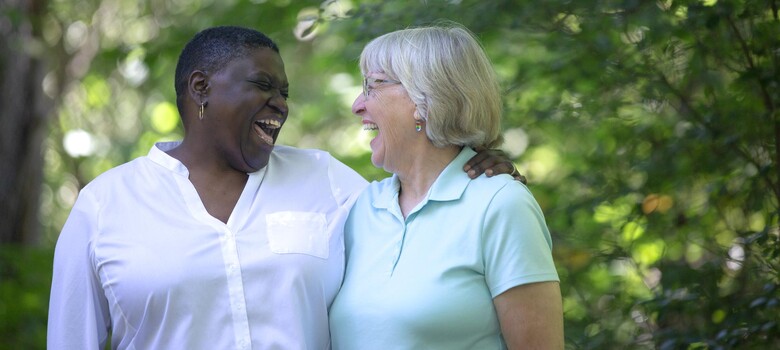The Benefits of Living Kidney Donation
Kidney transplant recipients experience many benefits when they receive a kidney from a living donor.
Kidneys Last Longer
According to the National Kidney Registry, kidneys transplanted from living donors can last nearly twice as long as kidneys from deceased donors -- sometimes up to 30 years or more.
Shorter Wait Time
Instead of your recipient having to wait for a call from the waitlist, the date and time of the surgery can be scheduled as soon as you and your recipient are ready.
Kat Williams and her kidney donor, Pat Gearity, discuss their transplant journey with hope of inspiring others to give the gift of life.
Should You Donate Your Kidney?
If you are considering living kidney donation, you may want more information to help you make your decision.
Our Experience with Kidney Donation Surgery
More than 40 years of kidney transplant expertise is collectively shared among our nationally-recognized kidney transplant surgeons.
One-Third of Our Kidney Transplants Are from Living Kidney Donors
We make every effort to ensure you do well, and we have the expertise to handle any situation that arises.
We Use Minimally Invasive Procedures to Remove Your Kidney
Our transplant surgeons use the most up-to-date, minimally invasive surgical techniques to remove your kidney for transplant. This innovative approach was pioneered at Duke and results in smaller incisions, less pain, shorter hospital stays, and faster recovery.
We Support Your Decisions
Your Health and Well-Being Are Our Priority
The life-sustaining gift of donating a kidney is an intensely personal, physical, and emotional journey. Our kidney transplant team includes kidney specialists, kidney transplant surgeons, social workers, independent living donor advocates, and transplant coordinators. This team is yours, completely separate from your recipient. We are dedicated to helping you fully understand the procedure and make a decision that is right for you.
We Are On-Call 24/7 for Your Medical Needs
The transplant coordinator helps you plan your visit, answers any questions you may have, and facilitates your personalized experience through the entire process: donation, recovery, and follow-up.



